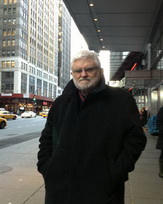
October 1, 2014
Chris McDonnell, UK
A faithful family
(Comments welcome here)
chris@mcdonnell83.freeserve.co.uk

|
|
October 1, 2014 Chris McDonnell, UK A faithful family (Comments welcome here)
|
chris@mcdonnell83.freeserve.co.uk
|
This
October, the Synod on the family begins its deliberation in
So
let us not expect too much straight away, but at least celebrate that a
discussion is about to start that has been a long time coming. The role of the Synod,
Pope Paul VI said, is to examine ‘the
signs of the times’ and ‘to provide a deeper interpretation of divine designs and the
constitution of the Catholic Church’ in order to ‘foster the unity and co-operation of bishops around the world with the
Holy See.’
That
position has not changed but in the light of a real wish to see Collegiality
effected in the universal Church, it is to be hoped that the Holy See listens
carefully to the views of the people beyond the See of Rome, seeking the Sensus
Fidelium, listening to those countless Christians who wish to live in accordance
with the Faith of the universal Church but who also ask for an honest
re-appraisal of a number of contentious issues in the light of our modern
experience. An excellent article in the on-line edition of
In
the midst of the debate, the public statements, the rumors and the secular
speculation, let us not forget to pray for the inspiration of the Spirit, that
we might be open to guidance for future progress of the Church and not remain
closed in an historical mindset that no longer serves our missionary needs.
END